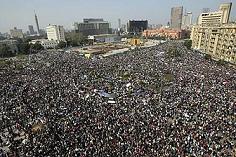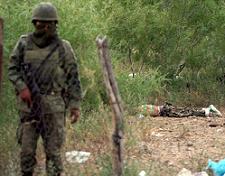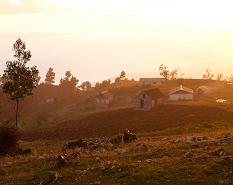Source: The Nation
The day before US missiles began raining down on Muammar el-Qaddafi’s Libya, hundreds of miles away—across the Red Sea—security forces under the control of Yemen’s US-backed president, Ali Abdullah Saleh, massacred more than fifty people who were participating in an overwhelmingly peaceful protest in the capital, Sana. Some of the victims were shot in the head by snipers.
For months, thousands of Yemenis had taken to the streets demanding that Saleh step down, and the regime had responded consistently with defiance and brute force. But on March 21, a severe blow was dealt to Saleh that may prove to be the strike that sparked the hemorrhaging that ultimately brought down his regime. That day, the most powerful figure in Yemen’s military, Gen. Ali Muhsin al-Ahmar, commander of the First Armored Division, threw his support behind the protests and vowed to defend Yemen’s “peaceful youth revolution.” Other senior military figures soon followed suit. Senior civilian officials, including scores of ambassadors and diplomats, announced their resignations. Important tribal leaders, long the most crucial element of Saleh’s grip on power, swung to the opposition. read more




